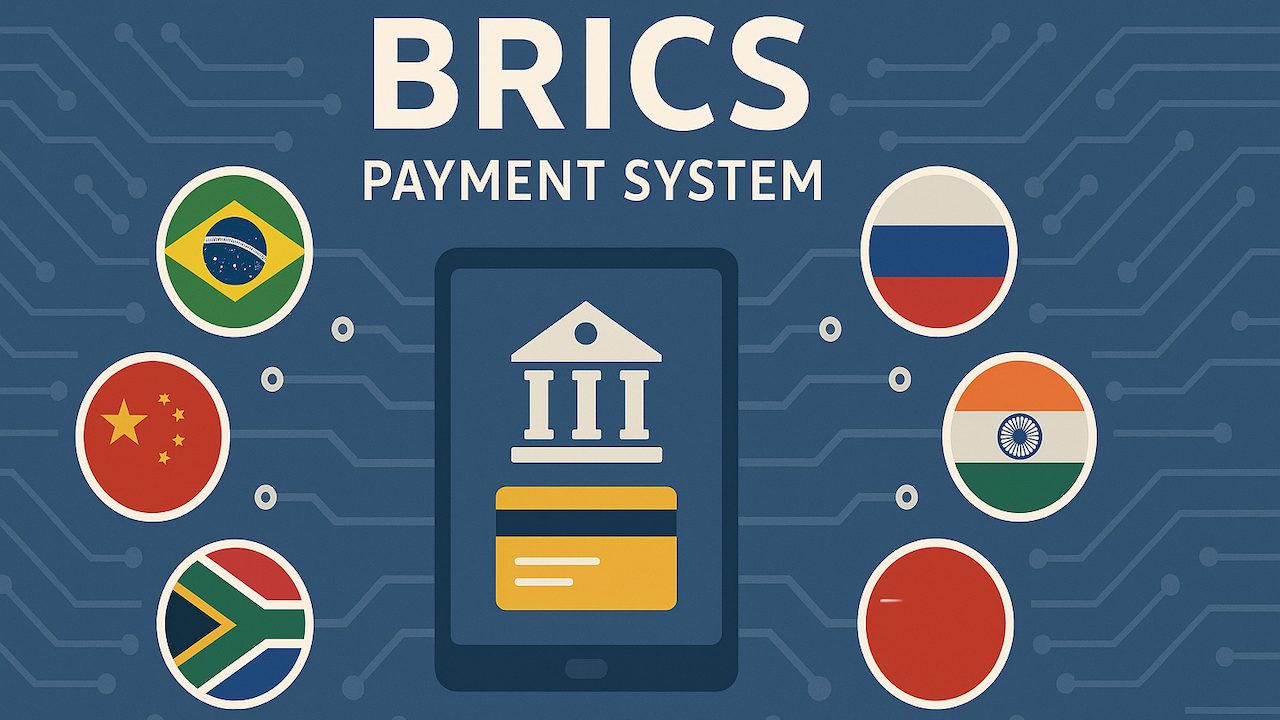(Mike Maharrey, Money Metals News Service) BRICS continues to develop a cross-border payment system that would provide an alternative to SWIFT and minimize reliance on the dollar. Success in the endeavor would accelerate de-dollarization and create significant problems for the U.S. economy.
Russia has been pushing particularly hard for the BRICS bloc to consider an alternative payment network to replace the dollar-denominated SWIFT system. It’s an ambitious plan easier said than done. After the BRICS fall summit in Kazan, Russian President Vladimir Putin conceded that there was no immediate plan, saying the economic bloc “have not and are not” creating such a system.
However, it appears that BRICS has pushed forward with plans and is making headway.
BRICS is an economic cooperation bloc originally made up of Brazil, Russia, India, China, and South Africa. As of January 1, 2024, the bloc expanded to include Egypt, the UAE, Iran, and Ethiopia. Saudi Arabia has also been formally invited to join but has yet to accept the invitation formally. Turkey, Azerbaijan, and Malaysia have formally applied to become members.
Last week, Russian Finance Minister Anton Siluanov emphasized that the buildup of financial infrastructure is crucial for the development of trade and the broader economies of BRICS nations.
“We are considering our various financial innovations on the BRICS floor, including the cross-border payment system that can be based, further to bilateral settlements, on national currencies with consideration of digital technologies and digital financial assets.”
According to an article published by MSN, the weaponization of the dollar by the U.S. and its Western allies has accelerated the development of BRICS-Pay. The system facilitates trade in national currencies, cutting the dollar out of the loop.
As the balance of global economic power shifts, BRICS nations are moving to reshape the international financial system, challenging the dominance of the U.S. dollar.
The article went on to assert, “The initiative aims to strengthen BRICS’s financial infrastructure and reduce reliance on the U.S. dollar.”
U.S. foreign policy has significantly sped up de-dollarization efforts.
The U.S. and other Western countries aggressively sanctioned Russia in the wake of its invasion of Ukraine. America and its allies locked Russia out of the SWIFT financial system and froze around $300 billion in Russian central bank assets.
Other countries took notice.
Using dollars as weapons may seem like an effective way to keep the “bad guys” in line, but it comes with risks.
Consider this: if you recognize something that makes you vulnerable, what do you do?
You take steps to eliminate or minimize the vulnerability.
So, if you’re worried that the U.S. and its allies might cut off your access to dollars, what would you do?
Minimize your dependence on dollars.
In other words, if you are concerned that the U.S. could pull the “dollar rug” out from under you, why not pull out from the dollar system first?
This is exactly what BRICS is trying to do.
MSN put it this way: “As U.S. sanctions and soaring debt pressure global economies, BRICS nations and other Global South economies are intensifying efforts to establish financial mechanisms that reduce their exposure to U.S. sanctions and dollar volatility.”
The economic bloc has not developed a unified currency, but BIRCS Pay could expand the use of digital versions of the yuan and the Russian ruble in international trade. According to the MSN article, 95 percent of trade between Russia and China is already settled in rubles and yuan.
Why It Matters
The U.S. needs the world to need its dollars.
Since the global financial system runs on dollars, the world needs a lot of them, and the United States depends on this global demand to underpin its bloated government. The only reason the U.S. can borrow, spend, and run massive budget deficits to the extent that it does is the dollar’s role as the world reserve currency. It creates a built-in global demand for dollars and dollar-denominated assets. This absorbs the Federal Reserve’s money creation and helps maintain dollar strength despite the Federal Reserve’s inflationary policies.
But what happens if that demand drops? What happens if BRICS nations and other countries don’t need as many dollars?
A de-dollarization of the world economy would cause a dollar glut. The value of the U.S. currency would further depreciate. At the extreme, global de-dollarization could spark a currency crisis. You and I would feel the impact through more price inflation eating away at the purchasing power of the dollar. In the worst-case scenario, it could lead to hyperinflation.
The world doesn’t have to completely abandon the dollar to create negative impacts. Even a modest drop in the demand for dollars will ripple through the U.S. economy.
Mike Maharrey is a journalist and market analyst for Money Metals with over a decade of experience in precious metals. He holds a BS in accounting from the University of Kentucky and a BA in journalism from the University of South Florida.

